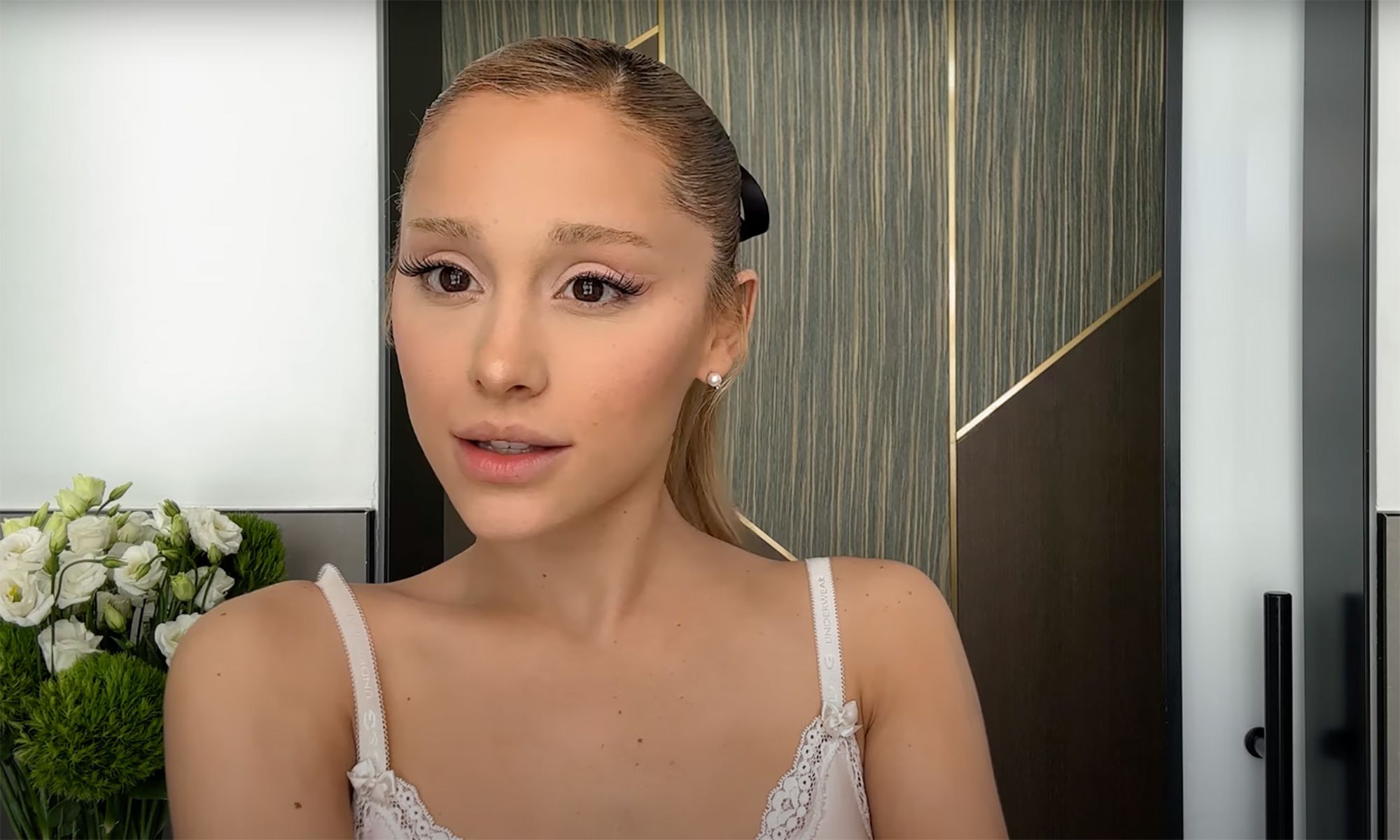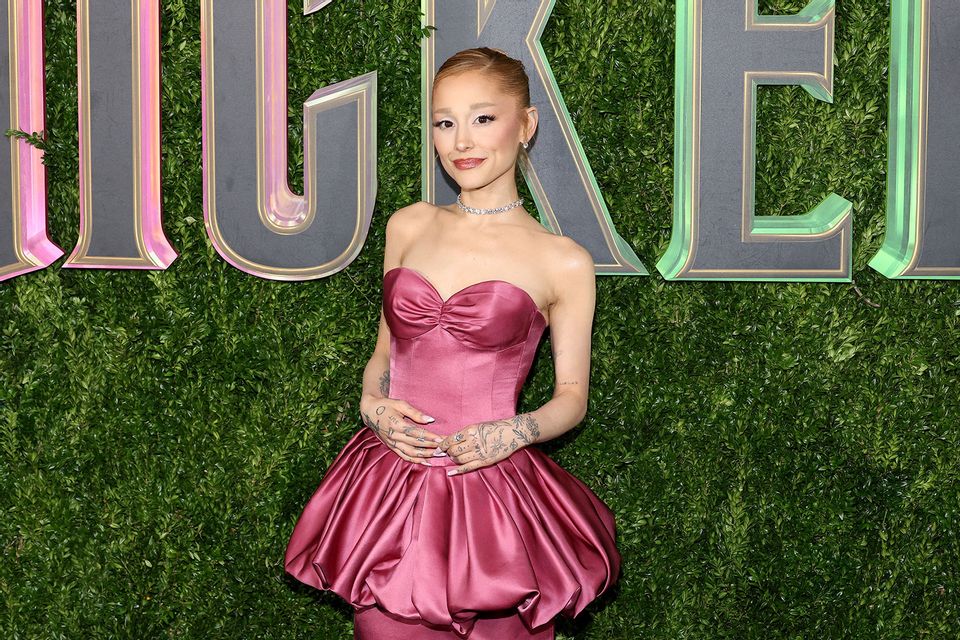Hey there, fellow fans and curious minds. Today, we’re diving deep into a topic that’s been buzzing around the internet: Ariana Grande and anorexia. It’s no secret that Ariana is one of the most talked-about celebrities in the world, and unfortunately, not all the talk has been positive. So, let’s take a moment to explore this sensitive subject, understand the truth, and debunk any myths floating around. Ready? Let’s go!
Before we dive in, it’s important to remember that this topic is serious. Anorexia is a real and dangerous condition that affects millions of people worldwide. Discussing it in relation to Ariana isn’t just about celebrity gossip; it’s about understanding the impact of societal pressures on mental health. We’ll explore whether Ariana has ever been diagnosed with anorexia, what the term actually means, and how we can support those struggling with similar issues.
Now, let’s set the stage. Ariana Grande is more than just a pop star. She’s a global icon, a role model, and someone who has faced her fair share of scrutiny. So, as we unpack this topic, let’s approach it with empathy and respect. After all, everyone deserves to be treated with kindness, especially when discussing their health and well-being. Let’s get started!
Read also:Whorsquos Josh Brolinrsquos Mom The Untold Story You Need To Know
Who Is Ariana Grande? A Quick Bio
Before we dive into the anorexia debate, let’s take a moment to understand who Ariana Grande really is. Born on June 26, 1993, in Boca Raton, Florida, Ariana is a powerhouse singer, actress, and songwriter. Her journey to fame began on the Nickelodeon show "Victorious," where she played the character Cat Valentine. Since then, she’s become a global sensation, earning multiple awards, breaking records, and inspiring millions with her music and activism.
Key Facts About Ariana Grande
Here’s a quick rundown of some essential facts about Ariana:
- Full Name: Ariana Grande-Butera
- Birthplace: Boca Raton, Florida
- Occupation: Singer, Actress, Songwriter
- First Major Break: "Victorious" on Nickelodeon
- Net Worth: Estimated at over $90 million (as of 2023)
But there’s more to Ariana than her career stats. Let’s take a closer look at her personal life, challenges, and achievements.
Table: Ariana Grande’s Personal Data
| Category | Details |
|---|---|
| Age | 30 years old (as of 2023) |
| Height | 5 feet 0 inches (152 cm) |
| Relationship Status | Married to Dalton Gomez (since 2021) |
| Education | Attended North Broward Preparatory School |
| Hobbies | Singing, songwriting, acting, activism |
What Is Anorexia Nervosa?
Alright, let’s get real for a moment. Anorexia nervosa is a serious mental health disorder characterized by an obsession with weight loss, distorted body image, and an intense fear of gaining weight. It’s not just about being thin; it’s a complex condition that affects both the mind and body. According to the National Eating Disorders Association, anorexia has the highest mortality rate of any psychiatric disorder. Scary, right?
So, why are we talking about this in relation to Ariana? Well, rumors have swirled around her appearance and weight over the years, leading some to speculate about her mental health. But is there any truth to these claims? Let’s find out.
Common Myths About Anorexia
Before we jump to conclusions, let’s debunk some common myths about anorexia:
Read also:David Goggins The Unstoppable Force Behind Mental Toughness And Beyond
- Myth: Only thin people can have anorexia.
- Reality: Anorexia can affect people of all shapes and sizes.
- Myth: It’s just about vanity.
- Reality: It’s a serious mental health condition with deep-rooted causes.
- Myth: Recovery is easy if you just eat more.
- Reality: Recovery requires professional help and support.
Has Ariana Grande Been Diagnosed with Anorexia?
Okay, here’s the big question: has Ariana Grande ever been diagnosed with anorexia? The short answer is no. There’s no credible evidence or official statement from Ariana or her team confirming such a diagnosis. However, that hasn’t stopped the rumors from spreading. Social media is a powerful tool, but it’s also a breeding ground for misinformation.
Let’s break it down. Ariana has always been open about her struggles with anxiety and trauma, but she’s never mentioned anorexia in her public statements. In fact, she’s often praised for her confidence and body positivity. So, where are these rumors coming from? Probably from people who don’t understand the difference between speculation and fact.
Why Do These Rumors Exist?
Rumors about celebrities’ health are nothing new. The entertainment industry thrives on drama, and unfortunately, that often means twisting facts to fit a narrative. Here are a few reasons why these rumors persist:
- Unrealistic beauty standards in the media
- Public scrutiny of celebrities’ appearances
- Lack of understanding about mental health disorders
It’s important to remember that Ariana is human, just like the rest of us. She’s under constant pressure to look a certain way, but that doesn’t mean she’s struggling with an eating disorder. Let’s give her the benefit of the doubt, shall we?
How Does Anorexia Affect Mental Health?
Now, let’s shift gears and talk about the impact of anorexia on mental health. This condition isn’t just about physical symptoms; it affects the mind in profound ways. People with anorexia often experience anxiety, depression, and low self-esteem. They may also struggle with obsessive thoughts and compulsive behaviors.
According to the World Health Organization, eating disorders like anorexia are linked to higher rates of suicide and self-harm. That’s why early intervention and treatment are crucial. If you or someone you know is struggling with an eating disorder, don’t hesitate to seek help. There’s no shame in asking for support.
Signs and Symptoms of Anorexia
Here are some common signs and symptoms of anorexia:
- Extreme weight loss
- Distorted body image
- Obsessive calorie counting
- Avoidance of social situations involving food
- Excessive exercise
It’s important to note that not everyone with anorexia will exhibit all of these symptoms. Each person’s experience is unique, and that’s why professional assessment is key.
Supporting Those Struggling with Anorexia
Alright, let’s talk about how we can support those struggling with anorexia. First and foremost, education is key. The more we understand about eating disorders, the better equipped we are to help those in need. Encourage open conversations about mental health, and don’t be afraid to reach out if you notice warning signs in someone you care about.
Here are a few ways you can make a difference:
- Listen without judgment
- Offer practical support, like accompanying them to therapy
- Challenge negative body image messages in the media
- Advocate for better mental health resources
Remember, recovery is a journey, not a destination. It takes time, patience, and support. Let’s be the change we want to see in the world.
Professional Treatment Options
If you or someone you know is struggling with anorexia, professional treatment is the best course of action. Here are some common treatment options:
- Therapy: Cognitive-behavioral therapy (CBT) and family-based therapy (FBT) are highly effective.
- Medication: Antidepressants may be prescribed to address underlying mental health issues.
- Nutritional counseling: A registered dietitian can help develop a healthy eating plan.
Recovery is possible, and with the right support, anyone can overcome anorexia. Let’s spread hope, not fear.
The Role of Social Media in Mental Health
Let’s talk about the elephant in the room: social media. Platforms like Instagram, Twitter, and TikTok have changed the way we consume information, but they’ve also contributed to the spread of misinformation. Celebrities like Ariana Grande are under constant scrutiny, and that can take a toll on their mental health.
Research shows that excessive social media use is linked to higher rates of anxiety and depression. The pressure to maintain a perfect image can be overwhelming, especially for young people. So, what can we do about it? Start by being mindful of the content you consume and share. Support positive messages and call out negativity when you see it.
Tips for Navigating Social Media Safely
Here are a few tips for using social media in a healthy way:
- Limit screen time
- Follow accounts that promote body positivity
- Unfollow accounts that make you feel bad about yourself
- Engage in offline activities to balance your digital life
Let’s create a digital space that’s safe, supportive, and empowering for everyone.
Conclusion: Let’s Focus on Positivity
Alright, we’ve covered a lot of ground today. From understanding anorexia to supporting those who struggle with it, we’ve explored this topic with empathy and respect. So, what’s the takeaway? Ariana Grande is a talented, resilient, and inspiring woman who doesn’t deserve to be defined by baseless rumors. Let’s celebrate her achievements and support her journey, whatever it may be.
Here’s a quick recap of what we’ve learned:
- Anorexia is a serious mental health condition that affects millions worldwide.
- There’s no credible evidence to suggest Ariana Grande has been diagnosed with anorexia.
- Supporting those who struggle with eating disorders requires education, empathy, and action.
So, what can you do next? Share this article with someone who needs to hear it. Leave a comment with your thoughts. And most importantly, be kind to yourself and others. Together, we can create a world where everyone feels seen, heard, and valued. Let’s make it happen!
Table of Contents
- Who Is Ariana Grande? A Quick Bio
- Key Facts About Ariana Grande
- What Is Anorexia Nervosa?
- Common Myths About Anorexia
- Has Ariana Grande Been Diagnosed with Anorexia?
- Why Do These Rumors Exist?
- How Does Anorexia Affect Mental Health?
- Signs and Symptoms of Anorexia
- Supporting Those Struggling with Anorexia
- Professional Treatment Options
- The Role of Social Media in Mental Health
- Tips for Navigating Social Media Safely
- Conclusion: Let’s Focus on Positivity



